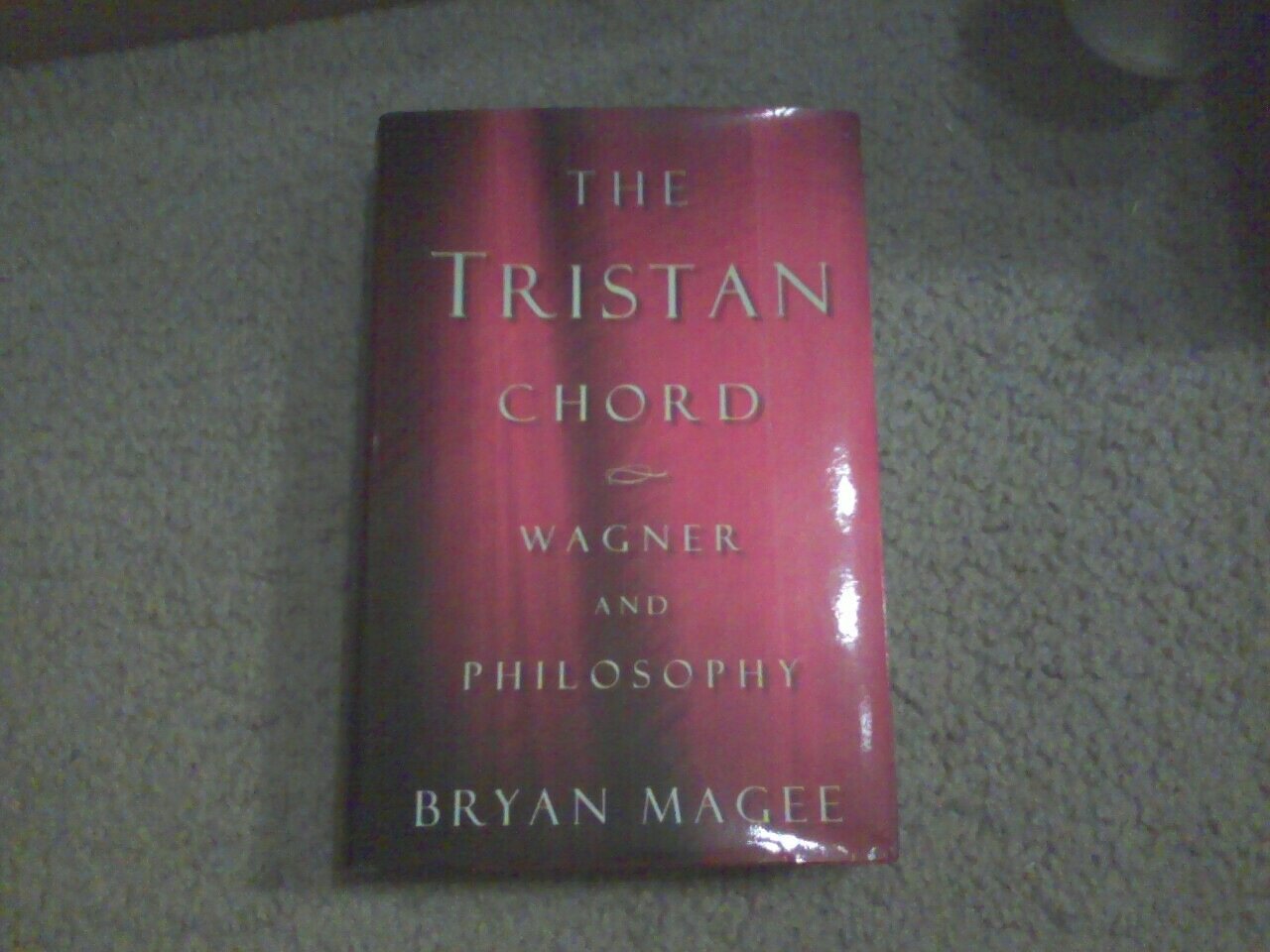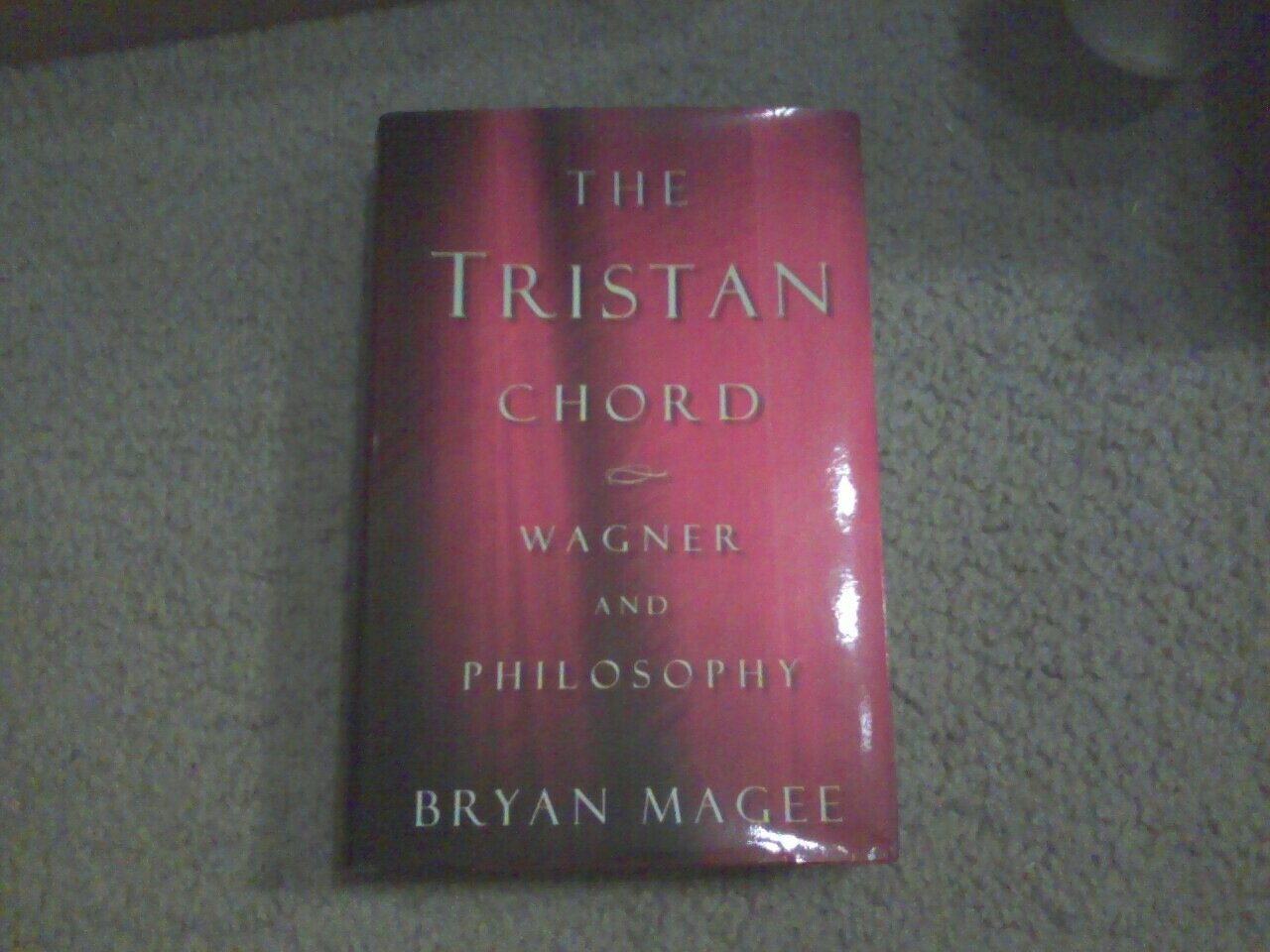Metropolitan Books
Tristan Chord: Wagner and Philosophy
Regular price
$7.95 USD
Regular price
Sale price
$7.95 USD
Unit price
per
Shipping calculated at checkout.
Couldn't load pickup availability
Title: Tristan Chord: Wagner and Philosophy
Author: Bryan Magee
ISBN: 9780805067880
Publisher: Metropolitan Books
Published: 2001
Binding: Hardcover
Language: English
Publisher Description:
A profoundly searching investigation that reveals for the first time the philosophical foundations of Wagner's art
Richard Wagner's devotees have ranged from the subtlest minds (Proust) to the most brutal (Hitler). The enduring fascination of his works arises from his singular fusion of musical innovation and theatrical daring, but also from his largely overlooked engagement with the boldest investigations of modern philosophy.
Now, in this radically clarifying book, Bryan Magee traces the Wagner's involvement in the intellectual quests of his age, from his youthful embrace of revolutionary socialism, to a Schopenhauerian rejection of the world as illusion, to the near-Buddhist resignation of his final years. Mapping the influence of ideas on Wagner's art, Magee shows how abstract thought can permeate musical work and stimulate creations of great power and beauty. And he unflinchingly confronts the Wagner whose paranoia, egocentricity, and anti-Semitism are as repugnant as his achievements are glorious.
At once a biography of the composer, an overview of his times, an account of 19th century opera, and an insight into the intellectual and technical aspects of music, Magee's lucid study offers the best explanation of W. H. Auden's judgment that Wagner, for all his notorious difficulties, was "perhaps the greatest genius that ever lived.
Author: Bryan Magee
ISBN: 9780805067880
Publisher: Metropolitan Books
Published: 2001
Binding: Hardcover
Language: English
Publisher Description:
A profoundly searching investigation that reveals for the first time the philosophical foundations of Wagner's art
Richard Wagner's devotees have ranged from the subtlest minds (Proust) to the most brutal (Hitler). The enduring fascination of his works arises from his singular fusion of musical innovation and theatrical daring, but also from his largely overlooked engagement with the boldest investigations of modern philosophy.
Now, in this radically clarifying book, Bryan Magee traces the Wagner's involvement in the intellectual quests of his age, from his youthful embrace of revolutionary socialism, to a Schopenhauerian rejection of the world as illusion, to the near-Buddhist resignation of his final years. Mapping the influence of ideas on Wagner's art, Magee shows how abstract thought can permeate musical work and stimulate creations of great power and beauty. And he unflinchingly confronts the Wagner whose paranoia, egocentricity, and anti-Semitism are as repugnant as his achievements are glorious.
At once a biography of the composer, an overview of his times, an account of 19th century opera, and an insight into the intellectual and technical aspects of music, Magee's lucid study offers the best explanation of W. H. Auden's judgment that Wagner, for all his notorious difficulties, was "perhaps the greatest genius that ever lived.

